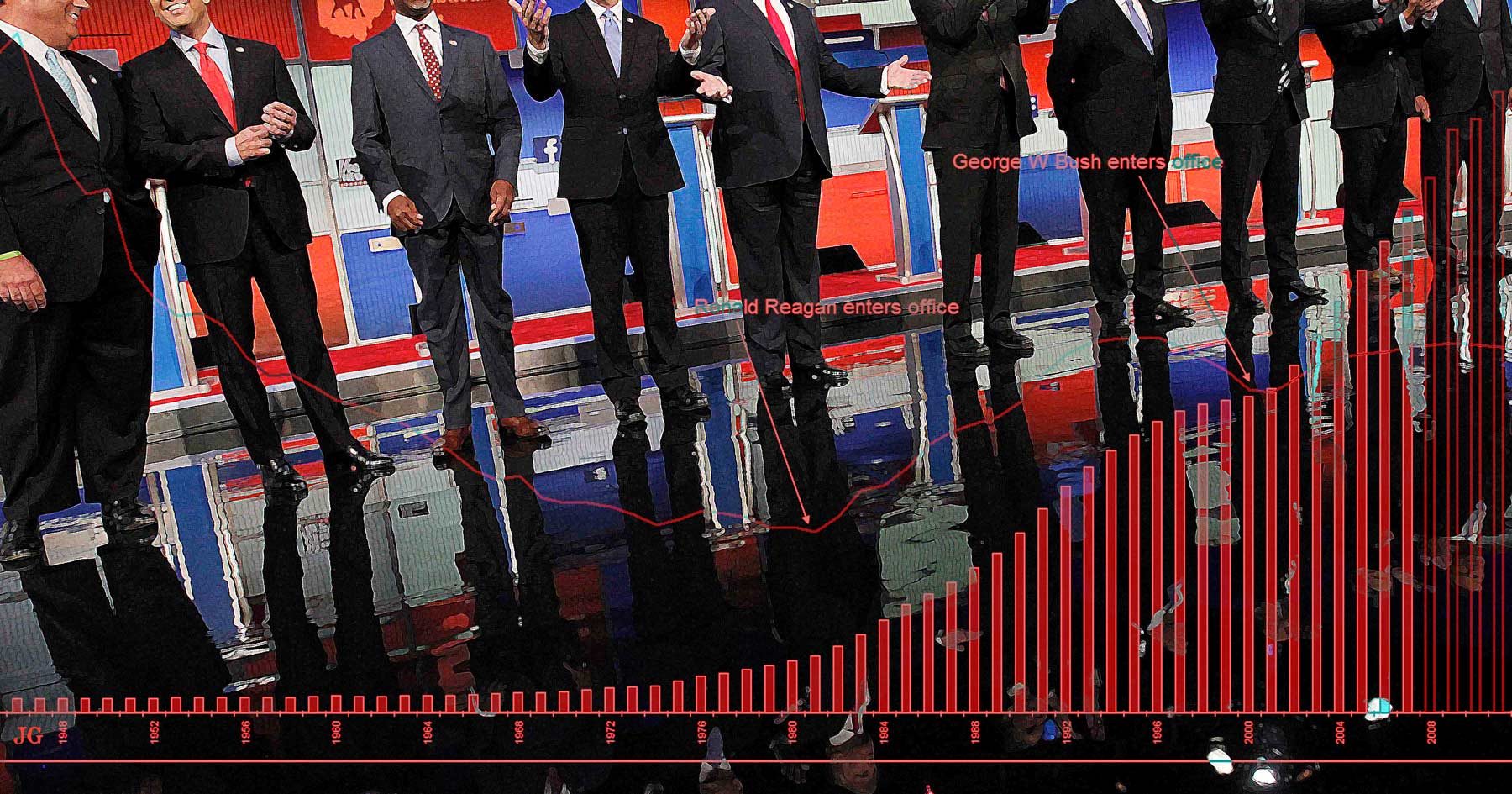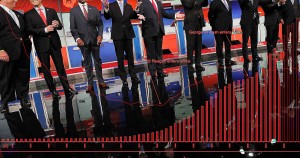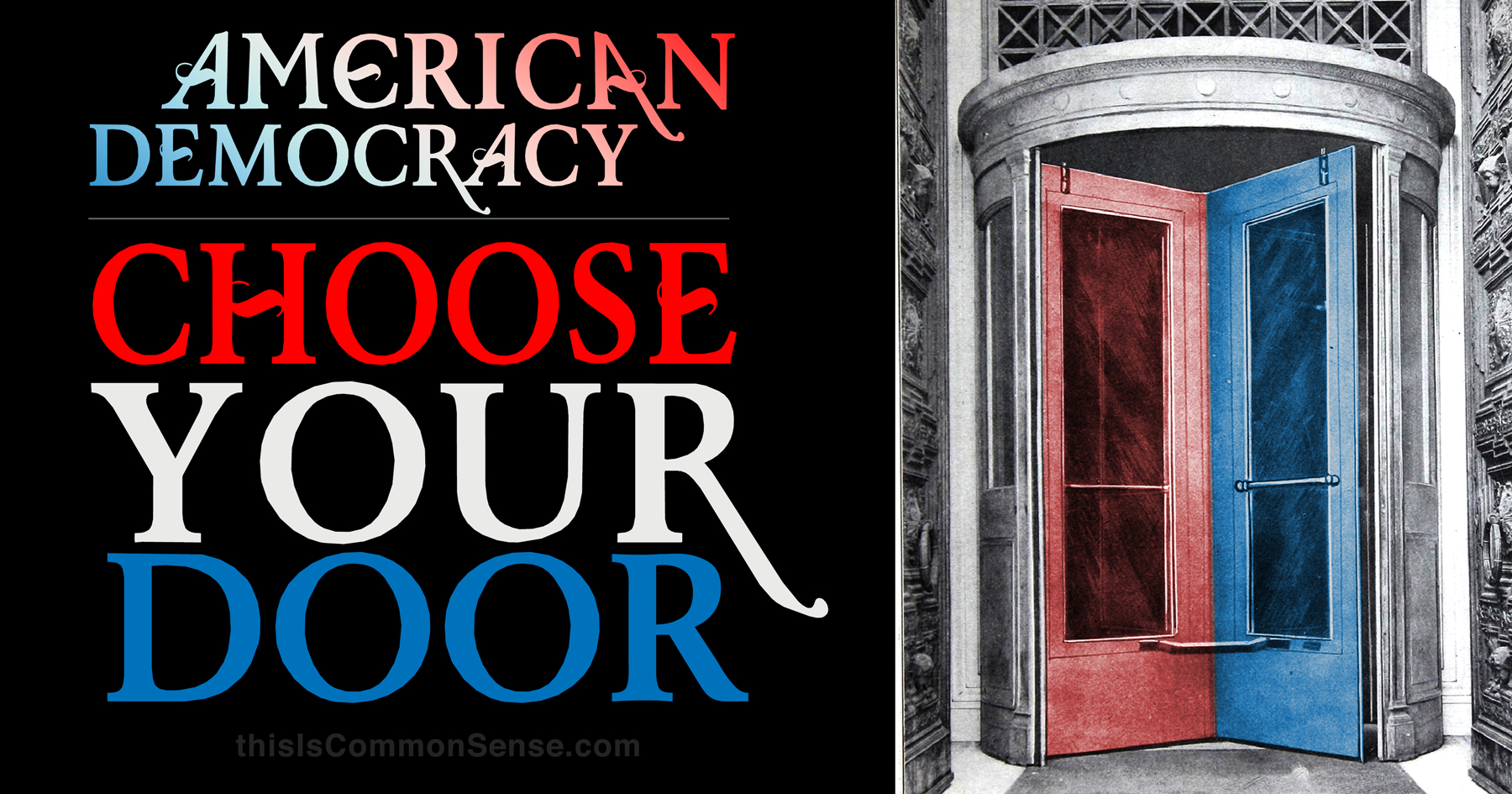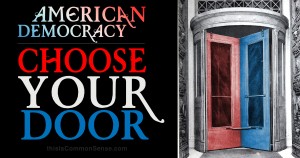Sen. Rand Paul wasn’t the only thing absent from the GOP presidential stage last Thursday.
Also missing? Any meaningful talk about reducing federal spending and avoiding a sovereign debt crisis. The debt looms over all our heads. But you wouldn’t know it to listen to the GOP hopefuls. (And the same nearly goes without saying for the Democratic Party’s debt-denying presidential aspirants.)
Way back when the Bush Administration had lost America’s confidence, deficits and debts were a common concern. Much of the disgust that birthed the Tea Party movement was disgust at Republican over-spending, as well as at the bailouts that spurred the initial protests. And then came Obama, Obamacare, and a 70 percent increase in federal debt.
Why the silence now?
Nick Gillespie, of Reason, figures that Republicans don’t really care about deficits and debts.
Andrew Flowers, of FiveThirtyEightPolitics, wonders whether the GOP has abandoned the issue because Republicans don’t want to face the fact that Obama has, indeed, reduced deficits — though definitely not the debt, which has nearly doubled.
Alternative theory? Republicans have given up hope, because the last two Democratic presidents, Bill Clinton and Barack Obama, have successfully threatened government shutdown over even the itty bittiest spending cut, safe in the knowledge that the mainstream media’s full spin-cycle will be blaming conservatives.
This has made it easier for Big Government Republicans to embrace greater military funding and other spending programs, as Gillespie notes.
But real leadership recognizes the present danger of debt.
This is Common Sense. I’m Paul Jacob.



